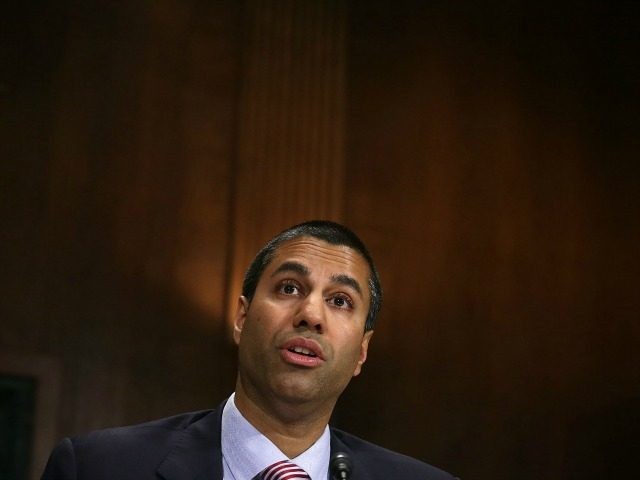Federal Communications Commission (FCC) Chairman Ajit Pai announced that the agency will establish an Office of Economics and Data to eliminate harmful regulations, and push more economically-sound regulations.
Chairman Pai announced that the FCC will create the new office to better integrate economics into policy decision making. Pai stated, “I’m pleased to announce that I am beginning a process to establish an Office of Economics and Data. This office will combine economists and other data professionals from around the commission. It will be tasked with providing economic analysis for rulemakings, transactions, and auctions; managing the commission’s data resources; and conducting longer-term research on ways to improve the commission’s policies.”
Harold Furchtgott-Roth, senior fellow at the Hudson Institute, said that Pai’s reforms “will serve as the template for how to manage federal agencies.”
Pai’s new data-based rule-making contrasts with former chairman Tom Wheeler, who instituted the controversial Net Neutrality regulations, which treats the internet as a public monopoly.
Ajit Pai remarked about the lack of economic reasoning behind the Net Neutrality regulations. He said, “A great example of this problem is the commission’s Title II Order. The FCC’s chief economist at the time of the Title II order’s adoption has joked that it was an ‘economics-free zone.’ It certainly didn’t include a traditional cost-benefit analysis. He then clarified more seriously that “a fair amount of economics [in it] was wrong, unsupported, or irrelevant.”
Chairman Pai remarked that harmful FCC regulations found more economically harmful than beneficial could be eliminated. This could mean that Net Neutrality and other harmful regulations could be next on Pai’s chopping block.
The chairman argued that rules proposed by the FCC and other regulatory agencies should be subject to cost-benefit analyses, and not merely add to what White House strategist Steve Bannon referred to as the “administrative state.” Pai said, “Outside of major rules, the FCC performs cost-benefit analysis of proposed rules occasionally, not systematically. Seldom does it consider the distributional impact of these costs and benefits. For example, are the costs of a new rule simply too high to be borne by small firms that lack an army of attorneys and accountants to help with regulatory compliance? How will this impact competition or innovation in a market?”
Pai commended the actions of President Trump to reform the regulatory apparatus of the federal government. He said, “It is worth noting, however, that the Trump Administration’s recently released Executive Order on regulatory reform specifically instructs teams to monitor compliance with cost-benefit guidelines established by both the Clinton and Obama Administrations.”
Pai believes that the FCC’s new economics office would create long-term strategic thinking. He said, “I want to create a culture of economics at the FCC that supports big-picture thinking once again.”

COMMENTS
Please let us know if you're having issues with commenting.